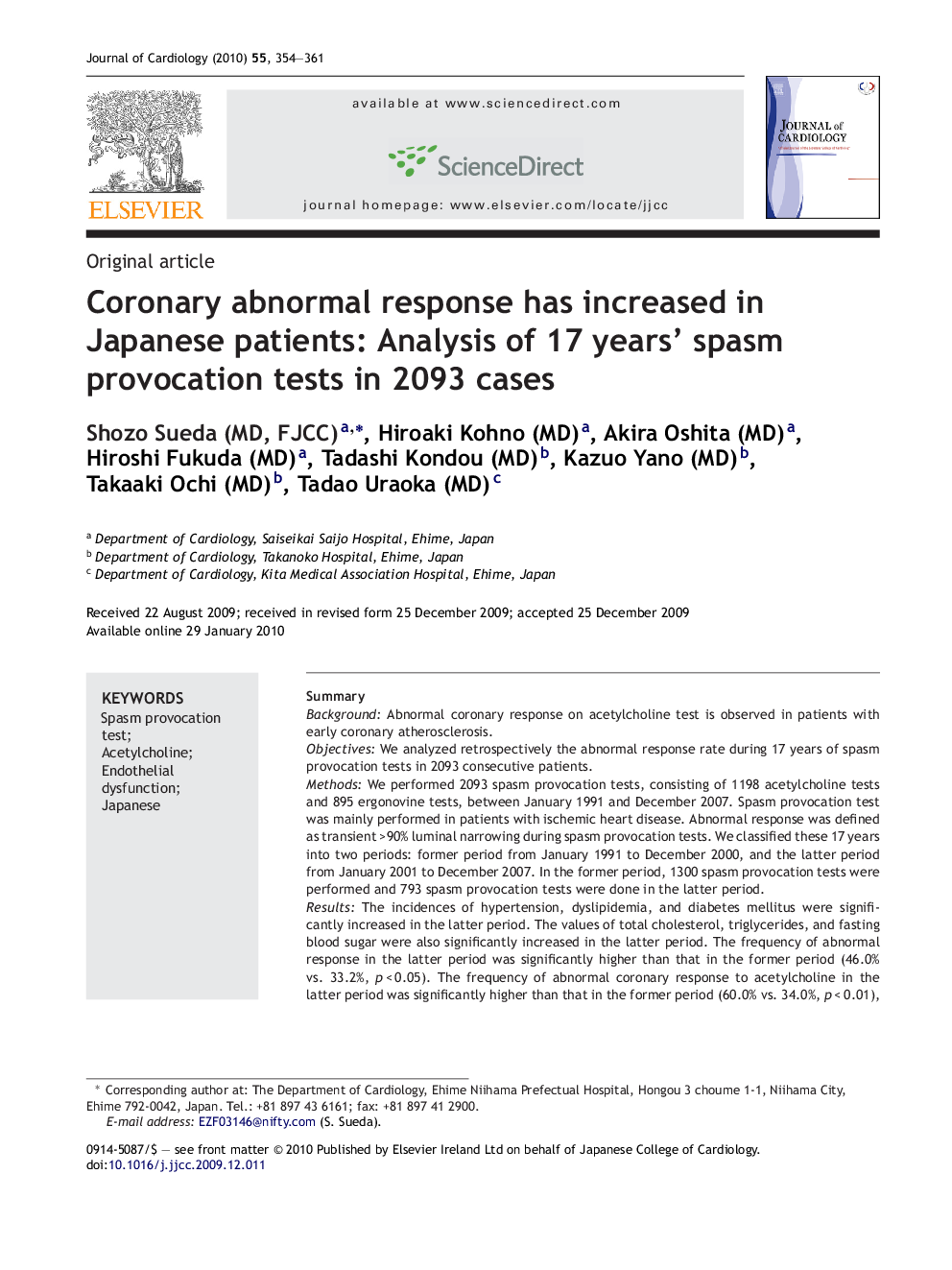| Article ID | Journal | Published Year | Pages | File Type |
|---|---|---|---|---|
| 2963574 | Journal of Cardiology | 2010 | 8 Pages |
SummaryBackgroundAbnormal coronary response on acetylcholine test is observed in patients with early coronary atherosclerosis.ObjectivesWe analyzed retrospectively the abnormal response rate during 17 years of spasm provocation tests in 2093 consecutive patients.MethodsWe performed 2093 spasm provocation tests, consisting of 1198 acetylcholine tests and 895 ergonovine tests, between January 1991 and December 2007. Spasm provocation test was mainly performed in patients with ischemic heart disease. Abnormal response was defined as transient >90% luminal narrowing during spasm provocation tests. We classified these 17 years into two periods: former period from January 1991 to December 2000, and the latter period from January 2001 to December 2007. In the former period, 1300 spasm provocation tests were performed and 793 spasm provocation tests were done in the latter period.ResultsThe incidences of hypertension, dyslipidemia, and diabetes mellitus were significantly increased in the latter period. The values of total cholesterol, triglycerides, and fasting blood sugar were also significantly increased in the latter period. The frequency of abnormal response in the latter period was significantly higher than that in the former period (46.0% vs. 33.2%, p < 0.05). The frequency of abnormal coronary response to acetylcholine in the latter period was significantly higher than that in the former period (60.0% vs. 34.0%, p < 0.01), whereas there was no difference concerning abnormal response of ergonovine between the two periods (31.9% vs. 30.7%, ns).ConclusionsIn Japanese patients, abnormal coronary response to acetylcholine has increased and coronary endothelial dysfunction is suggested to have progressed.
